Publications and media
Public Employment Programmes in South Africa’s Changing Social Protection Landscape
The paper examines the role of Public Employment Programs (PEPs) within South Africa’s evolving social protection landscape, emphasizing their intersection with unemployment, inequality, and social po...
Published on
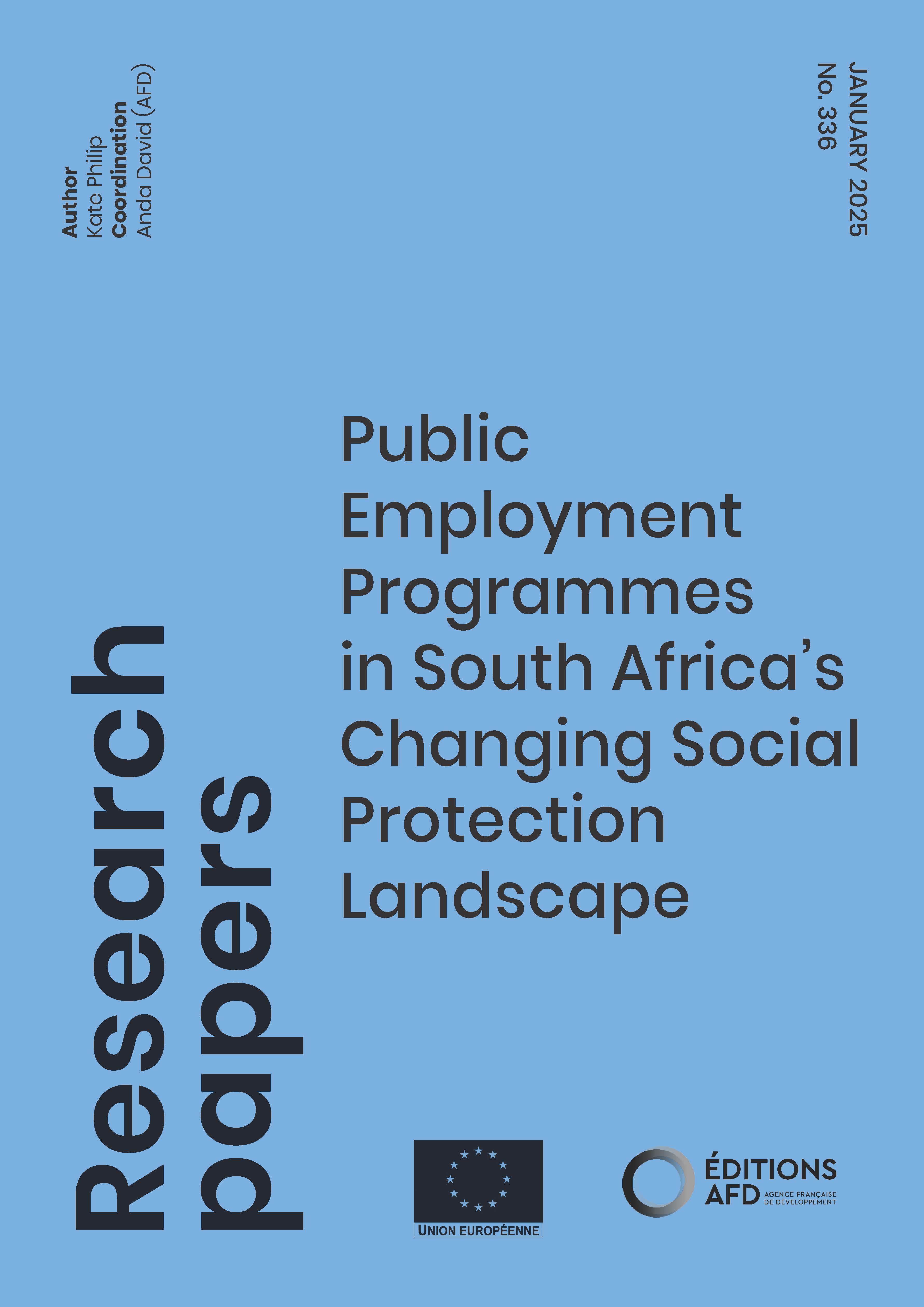
Namibia – Do the oil discoveries herald a more inclusive economy?
Namibia is on the brink of a major change which is set to radically transform its economy.Indeed, the recent discoveries of vast oil reserves could propel the country among the leading African produce...
Published on
How do global decarbonization trends create external risks for emerging and developing economies?
The low-carbon transition, despite its imperative nature, is likely to present both economic and social opportunities as well as downside risks, depending on the companies, sectors, or regions. The as...
Published on
An Analytical Framework to Assess Green Transition Jobs in South Africa
The threat of climate change and the resultant catastrophic weather events across the globe underpin the need for a shift away from carbon-intensive modes of production. In South Africa, where the gen...
Published on
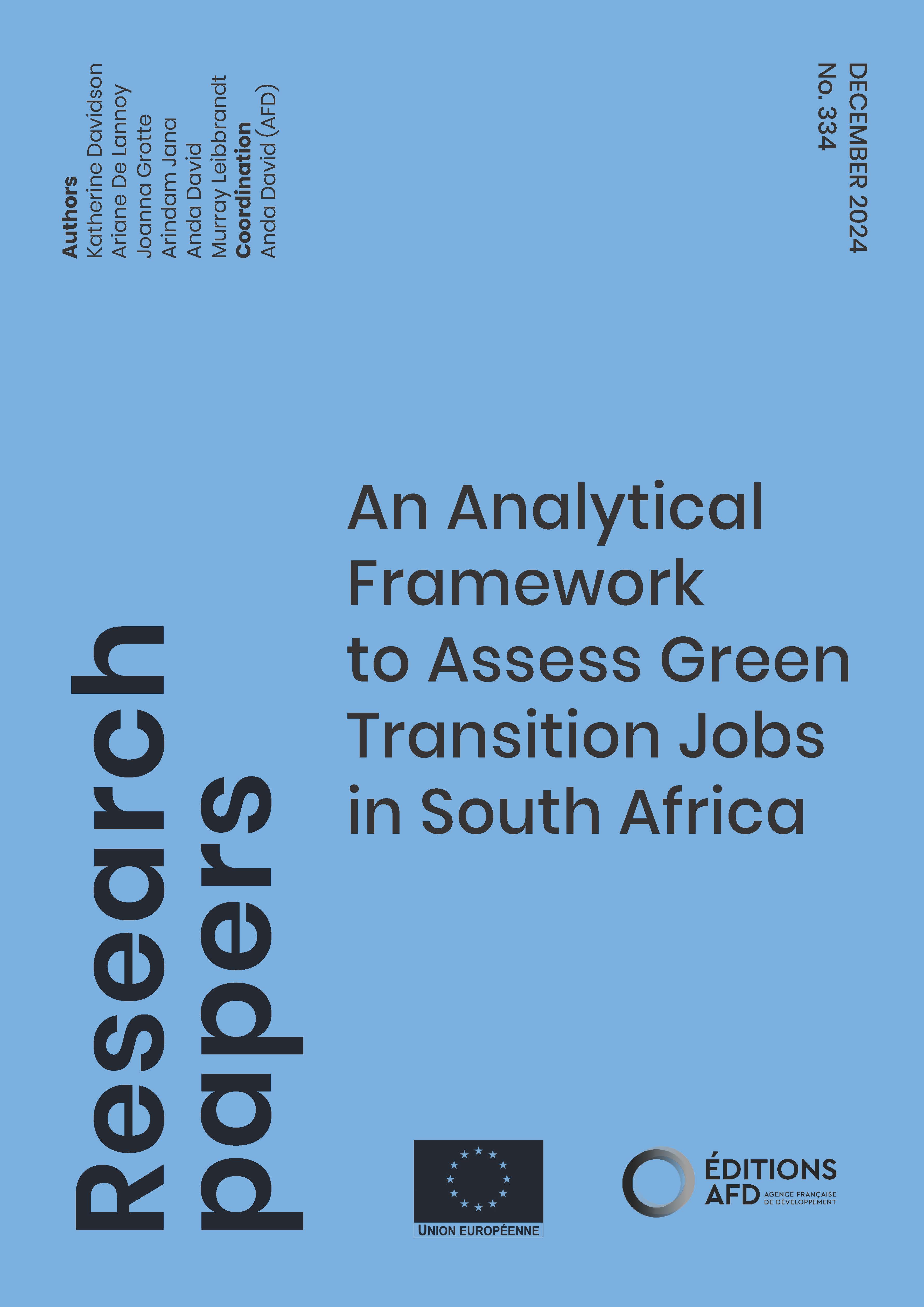
How can high-quality data on research systems improve decision-making and coordination in international develo...
Science remains a common language and high priority across countries. As such, science, technology, and innovation (STI) capabilities can contribute to sup port, develop, and deliver an ambitious inte...
Published on
Vietnam in the face of extreme heat events
Some of the greatest impacts of climate change worldwide arise from increasing extreme weather events, including hot temperature extremes. As global warming is projected to further intensify in future...
Published on
Financial and regulatory policies in the face of climate challenges
In 2015, in the run-up to COP21 in Paris, the speech by Mark Carney, then Governor of the Bank of England and mandated by the G20's Financial Stability Board, made history. He warned of the importance...
Published on
Water reuse, a strategic response to water stress?
The effects of climate change, which are particularly noticeable in countries around the Mediterranean and in the Middle East, are exacerbating water stress in these regions. Faced with increasing wat...
Published on
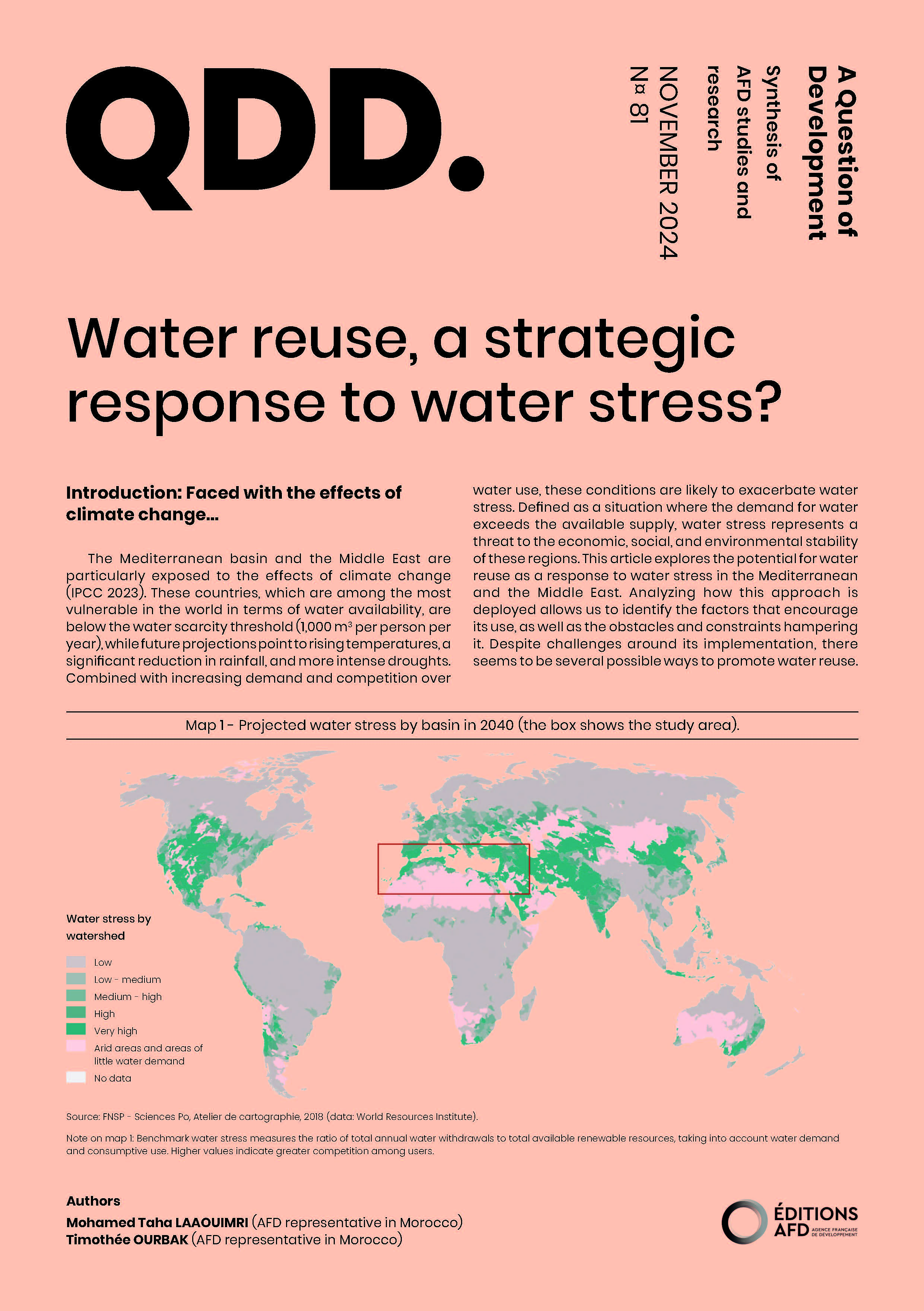
Energy and social protection measures for energy poverty
This article examines the impact of energy-enhancing measures for the poor, such as social protection or energy-earmarked measures, on influencing energy poverty and vulnerability. It employs a litera...
Published on
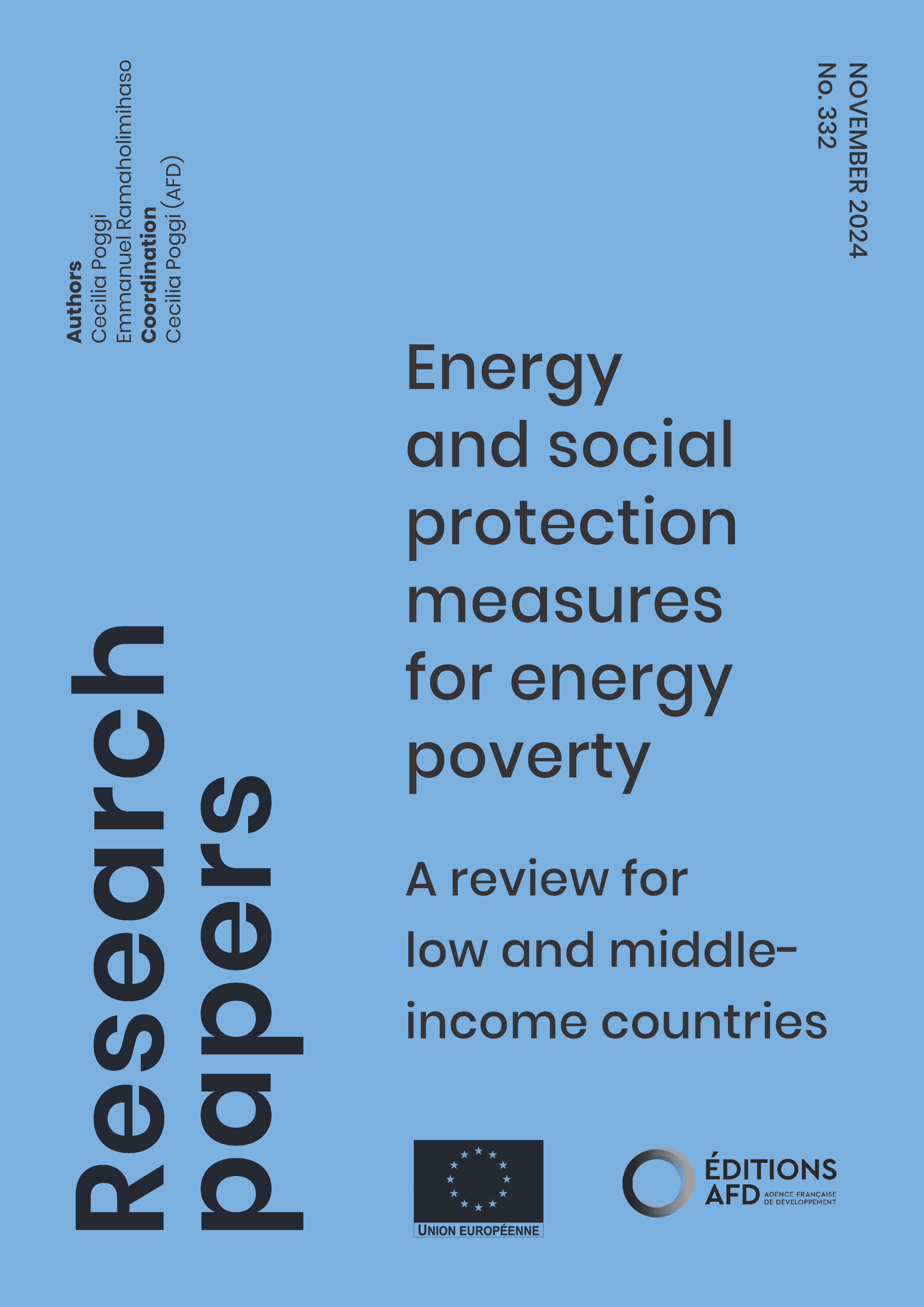
Are industries in emerging countries becoming greener?
According to the International Energy Agency (IEA), industry generates a fifth of the world’s direct greenhouse gas (GHG) emissions. It also produces indirect emissions due in part to electricity gene...
Published on
Quantifying Green Job Potential in Colombia: A Task-Based Approach
This paper examines the impact of the green transition on the Colombian labor market. Using a task-based approach and data from the 2022 Colombian Household Survey, we find that approximately 22.6% of...
Published on
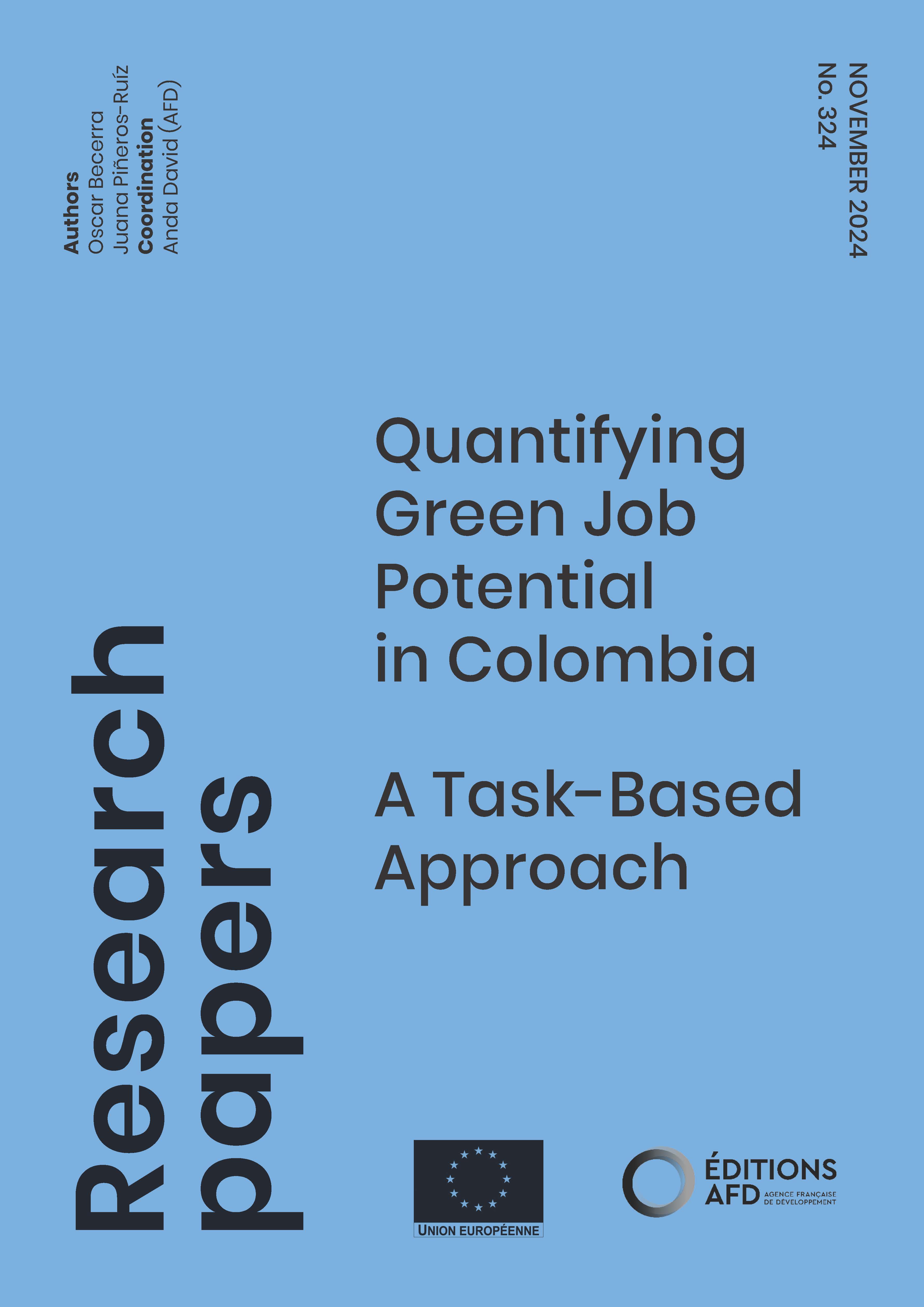
AI Investment Potential Index: Mapping Global Opportunities for Sustainable Development
This paper examines the potential of artificial intelligence (AI) investment to drive sustainable development across diverse national contexts. By evaluating critical factors, including AI readiness,...
Published on
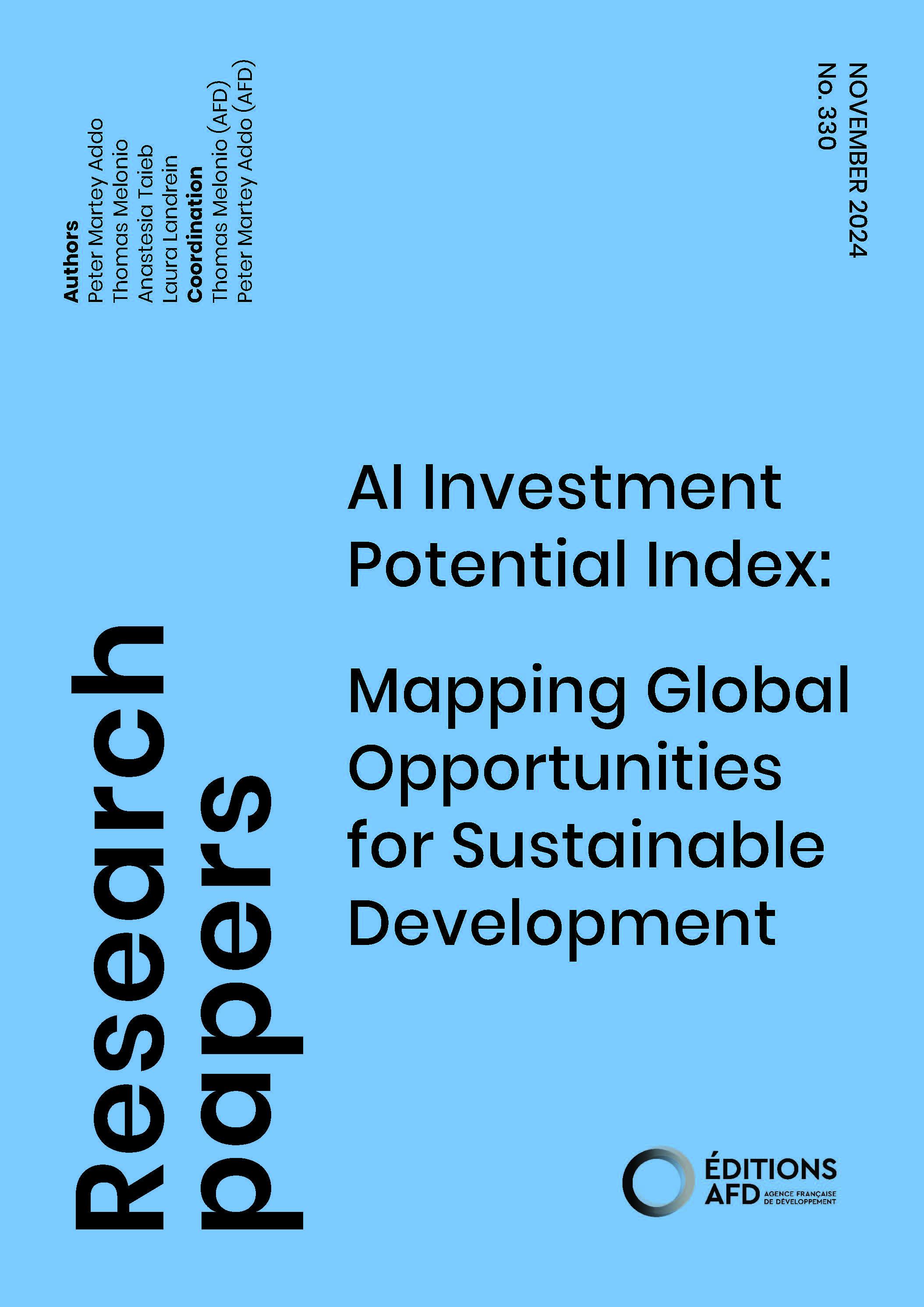
Citizens and the climate: Towards innovative decision-making in public climate policies?
This publication is a synthesis of a study by International IDEA: “Deliberative Democracy and Climate Change; Exploring the Potential of Climate Assemblies in the Global South”. The two main crises of...
Published on
Tackling climate challenges through financial regulation
In 2015, in the run-up to COP21 in Paris, the speech by Mark Carney, then Governor of the Bank of England and mandated by the G20's Financial Stability Board, made history. He warned of the importance...
Published on
Tracking the Path of Ocean Plastic Pollution in Southeast Asia
Insights from modelling and monitoring the circulation of marine debris in Indonesia Southeast Asian countries face a significant plastic pollution challenge. This policy brief explores how advance...
Published on
Sustainable public procurement: A lever for achieving the Sustainable Development Goals
Public procurement, which represents a significant portion of the national economy (averaging between 13% and 20% of GDP), is a powerful tool for achieving the Sustainable Development Goals (SDGs). In...
Published on
Assessing the state of the environment in Colombia: What can we learn from the ESGAP analysis
As part of the ECOPRONAT research programme, AFD supports the development of methodologies for assessing environmental sustainability on a territorial scale using the ESGAP (Environmental Sustainabili...
Published on
Comparative analysis of biodiversity measurement approaches for public development banks
This study provides a comparative analysis of biodiversity measurement tools for Public Development Banks (PDBs). The aim is to evaluate the accessibility and the added value of six predefined biodive...
Published on
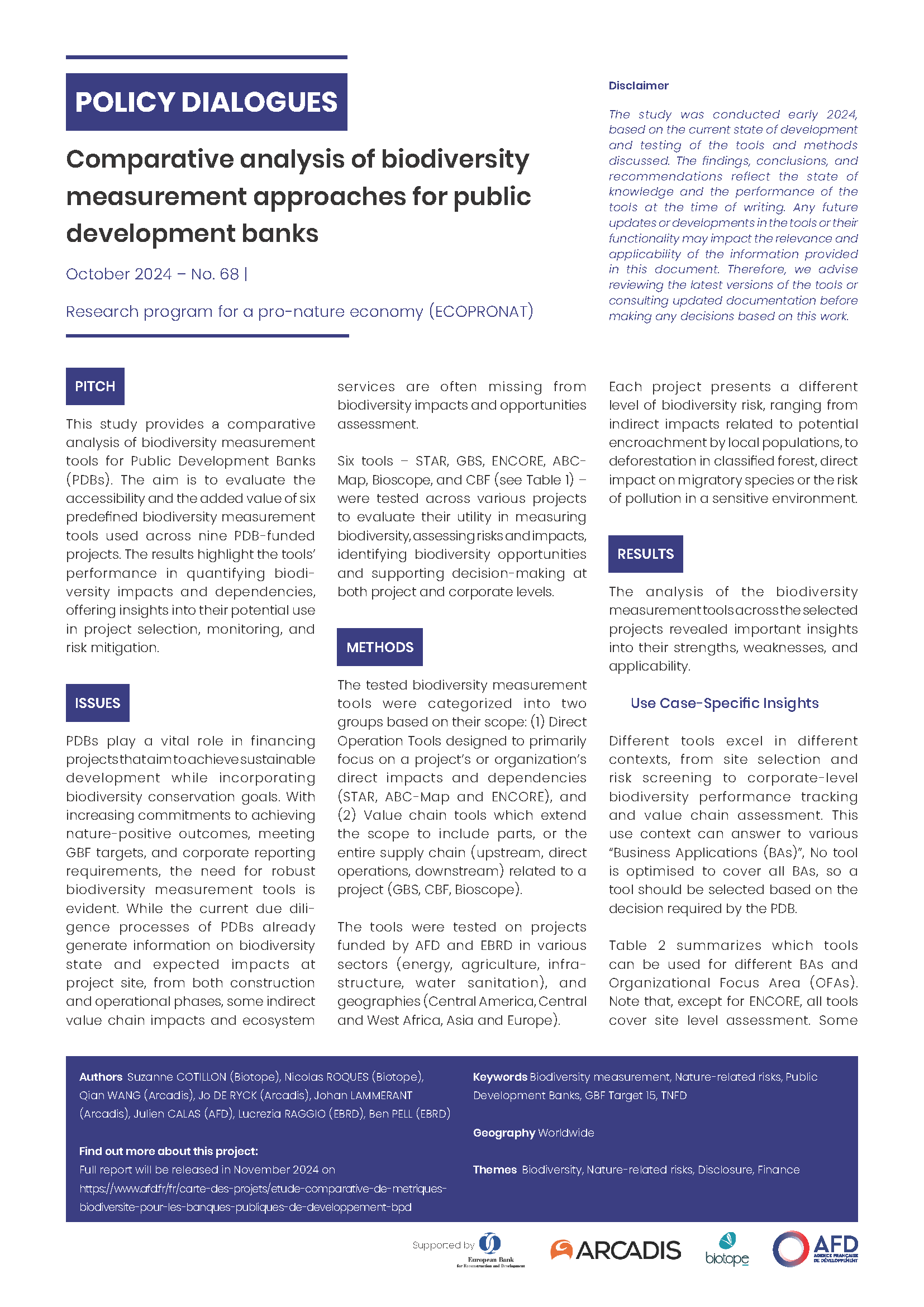
The nexus between “Human rights” and the “rights of nature” Debates, tensions and complementarities
In recent decades, initiatives to recognize rights for nature have multiplied, giving rise to a global movement. There are numerous opportunities for synergies between this movement and human rights,...
Published on
Double Standards in Financing for Development
The issue of international development and climate financing is currently at the forefront, especially in the run up to COP29, COP30 and to the 2025 FfD4 Conference in Seville. However, the internatio...
Published on
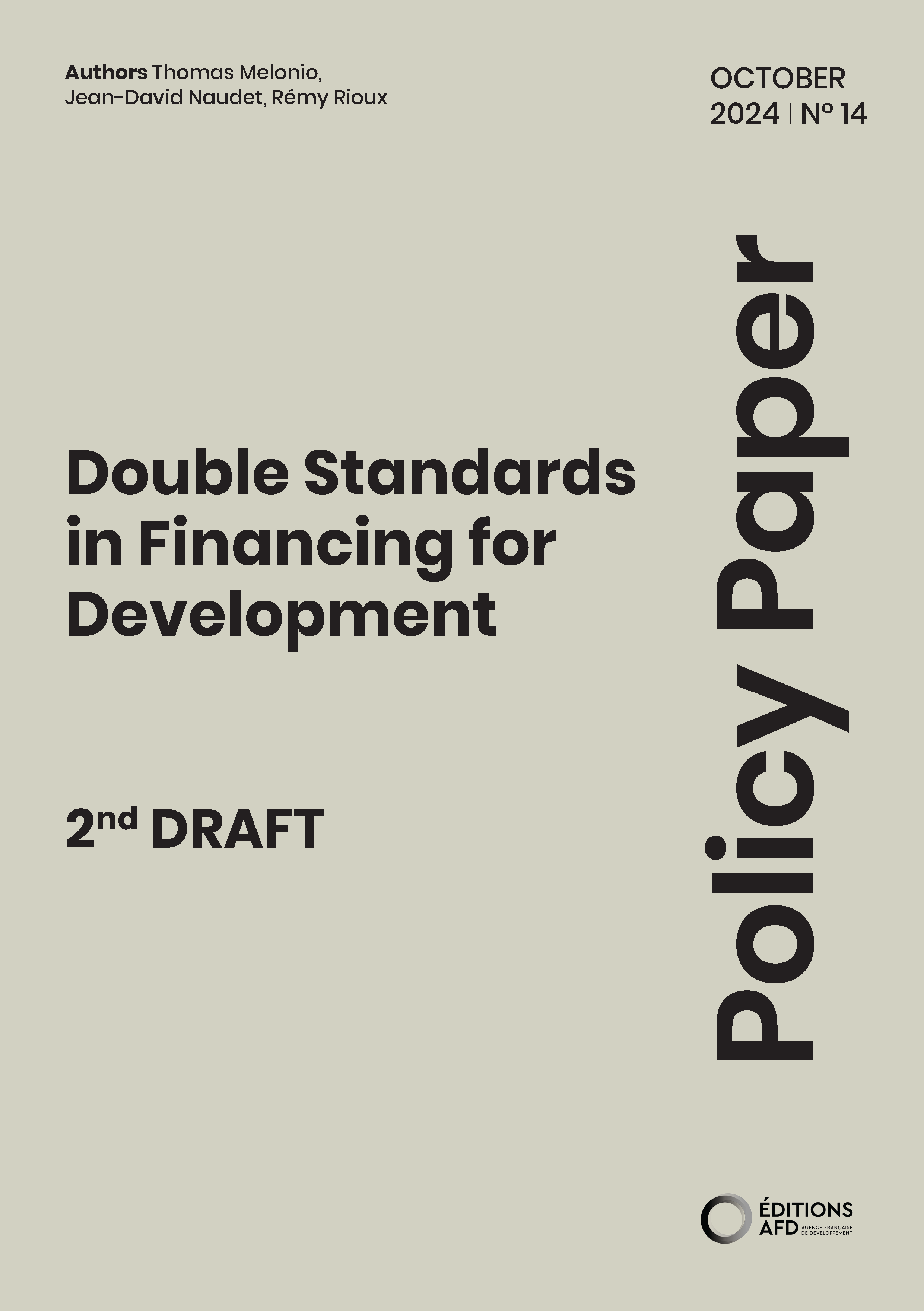
In Quest for Meaning: Towards a Common Understanding of the 2030 Agenda?
Recent developments in Natural Language Processing (NLP) are revolutionizing knowledge management (Hu et al. 2023). The generation of Large Language Models, like ChatGPT, breaks down barriers between...
Published on
